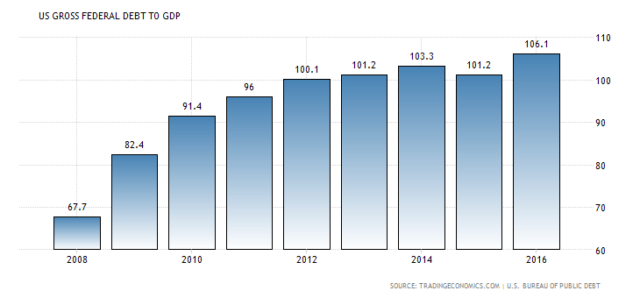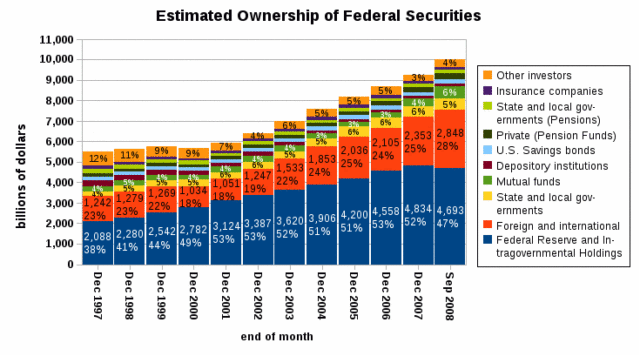We hear a lot about the national debt, but many of us don’t really know what it is or how it works. Today we will have an apolitical discussion on how the national debt actually works.
The national debt is big boogeyman during election years but how bad is it really and do you need to worry about it?
What is the National Debt?
The federal government takes in a certain amount of revenue and spends a certain amount of revenue. If it takes in more than it spends, there is a surplus. If it takes in less than it spends, there is a deficit. The amount of that deficit is the national debt.
Who is to Blame?
The president, any president, deserves neither as much blame they get when there is a deficit or as much credit as they get when there is a surplus. Our Constitution gives Congress the power to tax, spend, and pay or not pay the federal government’s debts.The president can propose a budget, but Congress has to pass it.
If you want to see how much we’re spending and how much we’re bringing in, here it is.
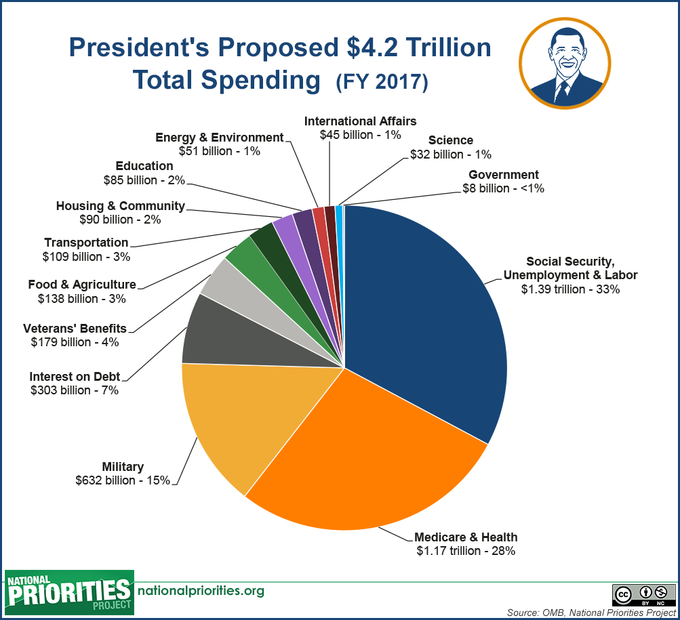
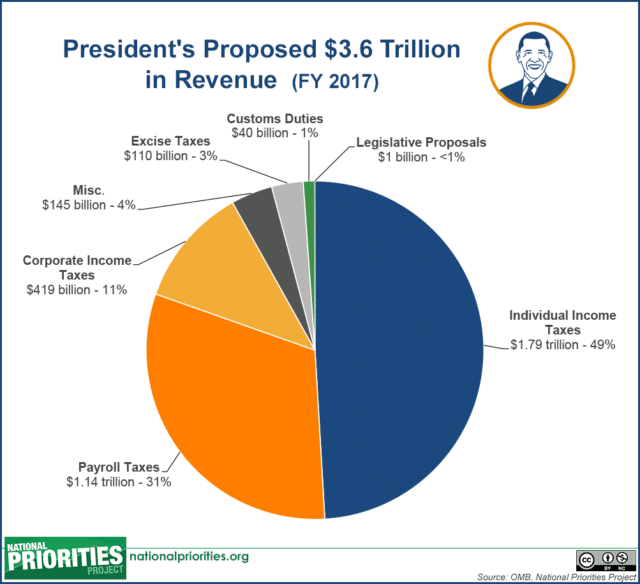
Raise the Roof
The debt ceiling is the amount of debt the federal government is allowed to carry. It is similar to the limit on your credit card. If your limit is $10,000, that’s all you can spend. There is a very significant difference though. You don’t get to set the limit on your credit card; the issuer decides that. You only get to choose how much of that $10,000 you’re going to spend.
Congress in this scenario is both the issuer and the spender. They get to set the debt ceiling amount and spend the money. When the spending ceiling is reached, the Treasury Department can’t issue any more Treasury bills, notes or bonds. It can only pay bills when tax money comes in.
But if there is one thing Congress loves, it’s loopholes. To prevent the US from defaulting on its debt, they can raise the debt ceiling. And they do. In 2008 and 2009, the ceiling was raised four times.
It’s Not Like Your Debt
While we all need to have a balanced budget because debt is bad for us, the same isn’t true for a nation’s budget. Deficits can be useful for a country’s economy. Deficit spending achieved by cutting taxes or by the purchase of goods and services by the government can help the economy.
“That is because much of the money that the government borrows and spends goes to the private sector. Private industry must then prepare to provide the various goods and services demanded by the government….In order to do this, these businesses must invest in new production facilities and greater productivity. This “crowding in” effect thus helps to mitigate any negative effects that public borrowing has on the private sector by indirectly encouraging more private investment and business growth.”
How Much We Owe and To Whom
You can see how much the national debt is at real time by watching the US National Debt Clock. The current number is $20.6 trillion. The national debt is divided into two categories, intragovernmental holdings, and public debt.
Intragovernmental holdings is a fancy way of saying money the government owes to itself and represents about 30% of the national debt. Why would the government owe itself money? Think of it this way. You have a variety of budget categories. Each month you budget $400 for food and $100 for bear traps.
You spent $450 on food though because you were going to Sushi Lounge a lot and that place isn’t cheap. But the survivalist store had a half off sale on bear traps, so you only spent $50 on those. You don’t need to go the bank and take out a loan for $50 to cover your food budget deficit; you can take the money from the bear trap portion of your budget.
The remainder of the national debt is public debt. This is debt held by individuals, corporations, state and local governments, Federal Reserve Banks and foreign governments. Foreign governments own about 30% of our debt, $6.4 trillion worth. China owns the most at about 5.5% which is $1.5 trillion, and Japan comes in second at nearly the same amount.
The public debt held by Federal Reserve Banks is a form of debt monetization and accounts for about 13% of all public debt and the Fed the largest holder of public debt. The Federal Reserve monetizes US debt when it buys Treasury bills, bonds, and notes.
The Fed doesn’t have to print money to do this. It issues credit to the Federal Reserve member banks holding Treasurys. The Fed then puts the Treasurys on its balance sheet. This credit is treated as money, and there is no need to print actual money.
If you subtract the debt the government owes to itself, we are left with roughly $14.6 trillion in debt which is a debt to GDP ratio of about 74%.
The Counter Balance
If we think of the national debt as our own credit card debt, then the GDP is kind of like the money we have coming in from our jobs, our investments, and our side hustles. GDP is Gross Domestic Product, the total value of everything produced by all the people and companies in a country.
Debt-to-GDP ratio compares a country’s total debt to its total economic output. This ration is used to measure the country’s ability to pay its debt. If the ratio is high, it indicates the country isn’t producing enough to pay back its debts. A low ratio means the country is producing enough to pay back its debts.
The US national debt is $20.6 trillion, and our GDP is $19.6 trillion give us a debt-to-GDP ratio of 104%. Well, that’s not great. Germany who has the biggest economy in the EU has a ratio of 72%. But this is America baby, and we make our own rules.
No one is running away from buying US debt because we can print more money and pay off our debt.
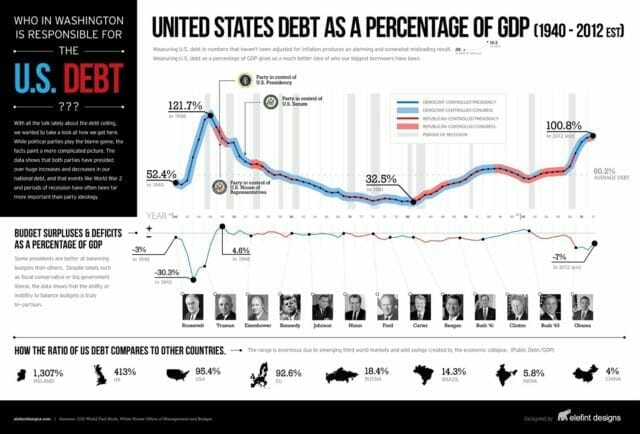
When you think of debt, you think of interest. And what do we always tell you about debt and interest? That it will be faster to pay off your debt if you can lower your interest. That’s why we recommend things like balance transfer cards to lower credit card debt interest and Earnest to lower student loan debt interest.
Credible's online marketplace connects borrowers with lenders in minutes. Refinance federal, private, and ParentPlus loans. Compare student loan refinancing rates from up to 7 lenders without affecting your credit score for free! Rates range from 5.24% to 12.44% APR
The interest rate on the national debt has decreased over time, so the amount we pay to service our debt is dropping. As of December 2017, the interest rate was just 1.24%. The average interest you’ll get on a mortgage is currently 4.2% so the government borrows at a rate of 25% of the rate we will get.
Debt-to-Income
Debt-to-Income compares the amount of your debt to the amount of your income. In 2017, the federal government took in $3.6 trillion and paid $303 billion in interest giving us a debt-to-income ratio of about 8.4%.
What should your ratio be? This is a question you’ll need to know the answer to if you want to take out a mortgage. Ideally, lenders want to see a number below 36%. You can calculate your number here. The average US household’s number is much higher than that, at 370% and we can’t print more money to devalue our debt.
This free course outlines a proven framework that thousands of people have used to eliminate their debt, develop better money habits, and start building a secure financial future.
Treasuries
Treasury bills, notes, and bonds are fixed income investments issued by the US Treasury Department. They are among the safest investments in the world because they are guaranteed by the US government. But low risk equals low return. The average rate of Treasury Bills in December 2017 was 1.248%. In the same month, the inflation rate was 2.1%.
We’ve explained why sticking lots of money in a savings account is a terrible idea, it’s because of inflation. The crappy sub 1% rate of interest your money is earning in those kinds of accounts is not enough to protect your money from inflation, never mind earn you any money.
Inflation is a tax on savings.
Tweet ThisInflation reduces the buying power of your money. If a cup of coffee costs $1 now, next year at this time it will cost $1.02 because of inflation. Your dollar is worth less than it was one year ago. So why do investors and especially foreign governments buy Treasuries?
The average investor likes them because they are so safe. Foreign countries have other motives. China buys them because it wants to keep its currency weaker than the US dollar because that means Chinese exports are cheaper than the US made products. This results in all the cheap crap places like Walmart sell. This practice creates a lot of jobs for the 1.4 billion Chinese.
The US likes this because Americans love buying cheap shit at Walmart. Selling debt to foreign countries helps fund government programs that grow our economy, and it keeps interest rates low.
It’s a Shell Game
Remember the example above about taking money from the bear trap budget for the food budget? We can do that, and the government does it too, but they can’t go about it quite so directly. If one department has more money than it needs, they use some of that money to buy Treasury Bonds. Then the government can transfer that money to a department with a budget shortfall.
The government shifts money around in this way all the time. The total amount of money is the same though just like it was in our household budget. In another bit of sleight of hand, the Fed can’t buy Treasury Bonds directly; it has to buy them on the open market.
Run it Like a Business
Some candidates like Michael Bloomberg run on the notion that he is a businessman, not a politician, and the government should be run like a business, i.e., be profitable without borrowing money. This is not the correct way to run a government though and not even how a business is run.
Businesses have debt, even successful ones. Imagine that you cracked the code of teleportation. You’ve worked it out on paper, but you need money to build the machine. You don’t want to get a loan to do it though because you don’t want to take on debt.
Okay, so you come up with various money-spinning ideas to fund your project. You print t-shirts, you start and monetize a blog and a podcast. In thirty years you have the money to build your machine. But you’re too late. Ten years ago some other person also cracked the code, but they borrowed money to build their machine. Now they’re a bazillionaire, and you have nothing.
The government is the same. We can’t wait for enough tax revenue comes in to do things like providing health care to citizens and build roads. We have to borrow money to do those necessary things.
Bitch Better Have My Money
What if China suddenly decides they want to call in all of their loans? Well, first of all, we saw above why China owning some of our debt is beneficial to their economy. And secondly, loans don’t work that way.
If you have a 30-year mortgage, the bank isn’t going to call you up in year 11 and tell you they want the balance paid now. Loans have terms whether they are loans from one country to another or from a bank to a consumer.
Just Write it Off
This is America, and we write our own rules. Why don’t we just erase the national debt? It would be unconstitutional to do so. It’s in there, way at the bottom:
The validity of the public debt of the United States, authorized by law, including debts incurred for payment of pensions and bounties for services in suppressing insurrection or rebellion, shall not be questioned.
The purpose of this amendment was to quell fears of insolvency over the debt incurred during the Civil War. Defaulting on the debt would also crush trust in the US both by citizens and foreign governments.
It’s Not the Taxes Dummy
If we consider all taxes collected as a fraction of the GDP as a pie, from 1950 to the present, the taxes collected are about 17% of the pie. Whatever happened to tax rates, the top marginal rate, the capital gains rate, the estate tax rate, in that same period, whether they were raised or lowered, the government collected the same 17% of the pie.
When those tax rates were raised, the following year, the government actually collected less revenue. The pie slice remained about 17%, but less revenue was collected than the prior year. The only taxes that have historically generated more tax revenue when they were raised were taxes on Social Security and Medicare. In other words, taxes on the poor and middle class.
Warren Buffett Isn’t Losing Sleep
Warren Buffett, who knows more about money than all of us combined times infinity is not worried about the national debt. While it’s true that $1 from 1930 is worth about $0.06 today, meaning it lost 94% of its value in the same period, in real terms, the GDP per capita has gone up 6 for 1.
Our debt is actually really cheap. In 2008 rates were 3.7% and fell to 1.8% in 2012. Because of that, the interest on the debt only made up 5.3% of the 2009 budget even though debt rose to $7.5 trillion. From 2010 to 2016, it remained below $250 billion even though the debt almost doubled.
Does This Affect You?
Is this one of those things that sound really scary and horrible but you can’t do anything about? Yes, pretty much. As the debt grows, the chance that the US would default on it increases which makes investors less likely to buy treasury issued securities. So the Treasury Department has to increase the yield on newly issued securities to entice new investors. Doing so reduces the amount of money the government has to spend on public programs because it’s paying out tax revenue as interest on the debt.
As the yield increase, it cost more to borrow money to buy a home because mortgage rates are linked to the short-term interest rates set by the Fed. This drives down home prices because prospective buyers can’t qualify for as big a mortgage. Because a home is the most significant investment most people have, their net worth is lowered.
This is the main way the national debt affects us. There are all kinds of doomsday scenarios surrounding what would happen if the US were to default, but the likelihood of that is pretty low. It could happen but it almost certainly won’t. So like Warren Buffett, you can sleep tight and now let the national debt keep you up at night.
Show Notes
Harviestown Ola Dubh: Ale aged in whiskey casks
Understanding the National Debt and Budget Deficit: Youtube
Tool Box: All the best stuff to manage your money.
